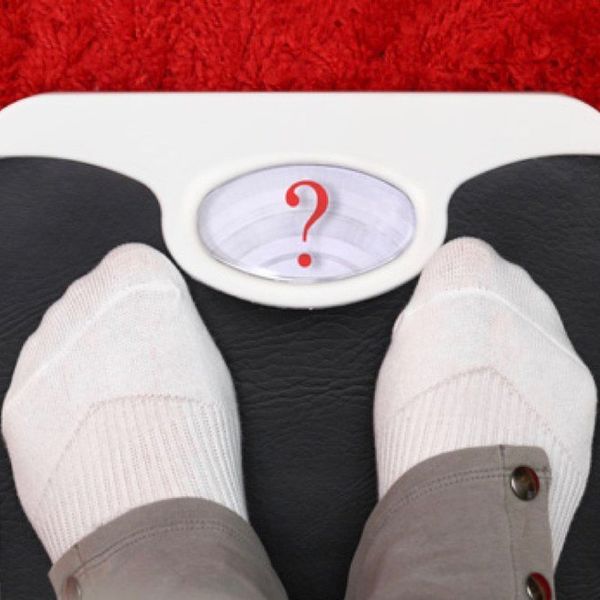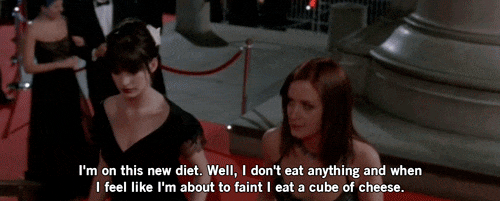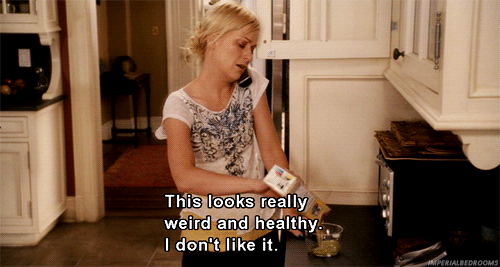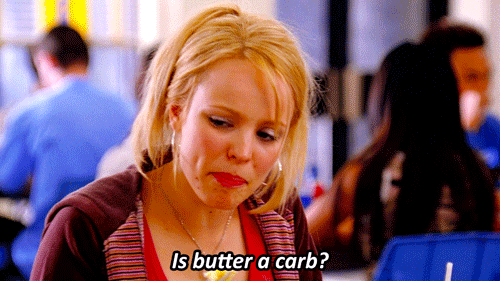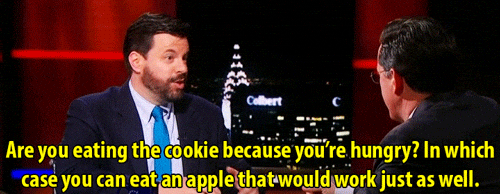Growing up in Southern California, I see the concept of dieting as nothing short of normal. You gain 10 pounds, suddenly it’s as if the world is crumbling apart, and you announce that you’re going on a diet. The newest trends in dieting have become more and more obscene as the years have gone by. Some of them include no carbs, no sodium, no bread, no butter, no soda, no meat. “I’m doing this detox where you only drink a kale smoothie for breakfast, lunch, and dinner—it’s fabulous!” Or “I’m only eating carrots for the next month!” I mean, come on, people! It’s ridiculous and it’s extremely unhealthy for your body, contrary to what some of you may think.
Not only can dieting lead to extreme health problems in later years, but it can actually make you gain weight, usually the opposite of what most people try to achieve when starting a diet. You see, when people use the word “diet,” they are referring to a temporary change in their eating and drinking routines. A temporary change in eating and drinking leads to a temporary change in weight—not a permanent solution. For some, the idea that there is a quick fix is enough, but if you’re looking to permanently lose weight or start a healthy lifestyle, what you need isn’t a diet, but a lifestyle change.
To put it into perspective, dieting can increase your risk for developing very serious medical conditions that include heart disease, diabetes, and stroke, among others. The constant see-saw of strain your body gets from losing weight quickly, to putting it all back on, creates an extreme amount of strain on your heart, lungs, and immune function. Yes, you might be able to lose 5 to 10 percent of your body fat on a number of diets, but the weight will come back because dieting is just a temporary fix for a problem that needs a permanent solution. This also psychologically promotes the development of eating disorders, body dysmorphia, body-image-related depression and more.
A lifestyle change, as opposed to a diet, includes permanent changes in your eating, drinking and exercise routines to promote a permanent change in fitness and weight. Lifestyle changes can include cutting out soda, not eating sweets unless it’s a cheat day, deciding to take the stairs instead of the elevator, or not eating bread and butter when served to you at a restaurant. Lifestyle changes mean getting rid of things that are not detrimental to your well-being or survival. Does this mean you can never eat your favorite chocolate-caramel powdered-sugar cream-puff deliciousness ever again? No! It means you don’t eat as many, or you cut down your intake of your favorite sweets, desserts, fast foods, etc. You don’t have to starve yourself in order to receive the results you want to see.
The main goal in anyone’s weight loss or fitness journey is the ability to put mind over matter. The hardest step is putting that first step forward. Do you have to be a gym rat? Absolutely not. Should you set goals for yourself like putting on the Nike’s and stepping inside the gym more than once a week? Absolutely. Everything about your journey comes back to the ability to keep your mental state strong. Everyone gives in once in a while, and it’s not easy to make a lifestyle change that you’ll stick with forever, but the important thing is not giving up. You have to remember, whether you’re dieting, making a lifestyle change, or unsure where to start, that you are beautiful and strong and it does not matter what other people think of you. It is how you see yourself, and how you maintain a healthy body and mind. Don’t put the extra strain of dieting onto your body. Instead, make a lifestyle change that will change your fitness and weight-loss journey for the better.

